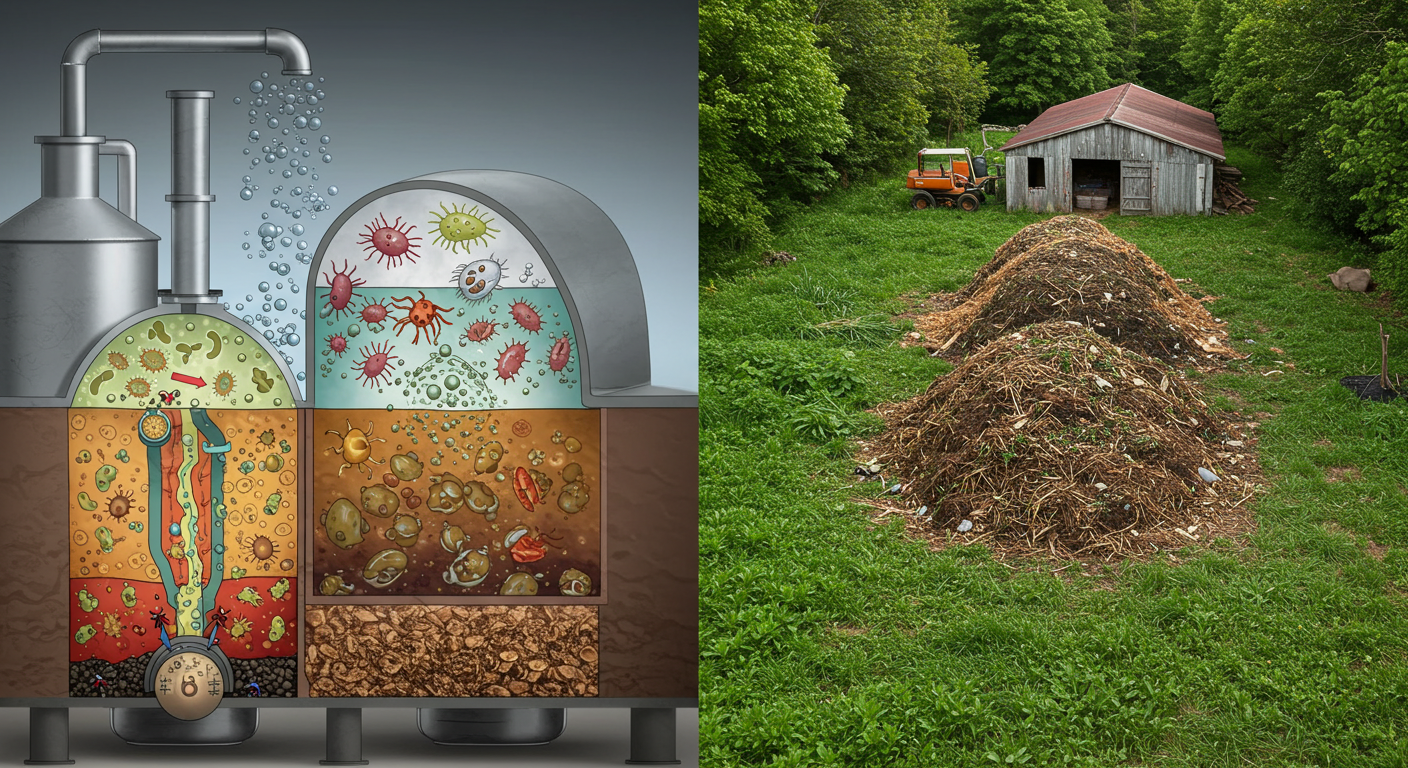Introduction to Sustainable Farming Practices
Sustainable farming practices refer to agricultural methods that prioritize environmental health, social equity, and economic viability. This modern approach to agriculture emphasizes the need for farming systems that can produce food without compromising the ability of future generations to meet their own needs. In today’s agricultural landscape, the significance of adopting sustainable practices cannot be overstated, as they address numerous pressing challenges, including climate change, soil degradation, and resource depletion.
One of the core concepts of sustainable farming is minimizing environmental impact. Traditional farming practices often result in soil erosion, water pollution, and loss of biodiversity. Sustainable methods, such as crop rotation, organic farming, and integrated pest management, help maintain ecological balance and enhance the overall health of the ecosystem. By reducing reliance on chemical inputs and promoting biodiversity, farmers can create resilient systems that support both agricultural productivity and environmental health.
Another critical aspect of sustainable farming is resource management. Efficient use of water, soil, and energy is paramount in promoting sustainability. Techniques such as rainwater harvesting, drip irrigation, and renewable energy sources like solar panels are becoming increasingly popular among farmers seeking to optimize resource use. By incorporating these methods, farmers not only reduce operational costs but also lessen their environmental footprints, contributing to a more sustainable agricultural model.
Community engagement plays a vital role in sustainable farming practices as well. This approach encourages collaboration among farmers, consumers, and local organizations. By fostering relationships and sharing knowledge, communities can support practices that promote food security and local economies. Engaging with consumers also creates awareness about sustainable practices, highlighting the importance of making informed choices about food consumption. Overall, the shift toward sustainable farming solutions is essential in addressing today’s agricultural vulnerabilities and ensuring a healthier planet for future generations.
Identifying Your Target Audience
Understanding your target audience is essential when creating an online course on sustainable farming practices. The effectiveness of your course greatly depends on how well you can identify and cater to the needs of your potential learners. Numerous demographics show interest in sustainable farming, including established farmers, hobbyists looking to cultivate their own gardens, and environmental advocates passionate about promoting sustainability.
Farmers, who are already engaged in agricultural practices, often seek out sustainable methods to increase their yield while reducing their ecological footprint. These individuals are typically looking for advanced techniques in permaculture, organic farming, or regenerative agriculture. On the other hand, hobbyists are generally individuals who may possess a basic understanding of farming but are eager to learn sustainable methods to enhance their gardening skills. They often appreciate practical tips and hands-on advice that can be easily integrated into their current practices.
Environmental advocates, meanwhile, are driven by a desire to promote sustainability and often look for courses that provide actionable strategies for advocacy in their communities. This group may prioritize the environmental impact of sustainable farming practices over economic gains, calling for educational content that emphasizes ecological balance and biodiversity.
To effectively conduct market research when identifying your target audience, consider various strategies such as surveys, interviews, and social media insights. Surveys can be distributed to existing audiences or social media groups dedicated to sustainable agriculture. Conducting interviews with potential learners can also yield valuable insights into their specific interests and learning preferences. Engaging with online communities or forums focused on sustainable living can further provide a clearer picture of what content resonates most with your audience. Balancing these insights with your course objectives will ensure you provide a course that meets your audience’s needs.
Designing the Course Curriculum
Creating an effective course curriculum on sustainable farming practices requires careful planning and consideration of key topics that will provide learners with a solid foundation. The first step in designing the curriculum is to identify the essential subjects that will engage students and equip them with practical knowledge. Critical topics to consider include soil health, which is fundamental in understanding how to maintain productive and environmentally friendly farmland; crop rotation, an effective strategy for maximizing yields while preserving soil fertility; pest management, which encompasses both chemical and organic approaches to controlling harmful insects; and sustainable livestock practices that align with ecological principles.
To structure the lessons effectively, it is essential to maintain a balance between theory and practical exercises. Begin each module with theoretical instruction to provide the learners with a comprehensive understanding of the core concepts. This can be followed by practical activities that allow students to apply their knowledge in real-world situations, promoting experiential learning. For example, after learning about soil health, students could engage in hands-on activities such as soil testing and analysis, giving them the opportunity to observe firsthand the implications of their studies.
Pacing is another critical component in curriculum design. Teachers should ensure that each topic is allotted sufficient time for exploration while allowing for questions and discussions. For example, the curriculum could be structured into weekly modules, with each week dedicated to a specific topic such as pest management techniques or sustainable crop selection strategies. Additionally, incorporating assessments, such as quizzes or projects, can help reinforce the material and gauge student understanding. By intentionally designing the course curriculum with these elements in mind, educators can enhance the learning experience and foster a deeper comprehension of sustainable farming practices.
Choosing the Right Platform for Your Course
When planning to create and sell your online course on sustainable farming practices, selecting the appropriate platform is essential for its success. Numerous online course hosting platforms are available, each offering unique features that cater to various needs. In this section, we will examine three popular platforms: Teachable, Thinkific, and Udemy, focusing on their user-friendliness, pricing, branding options, and built-in marketing tools.
Teachable stands out for its intuitive user interface that allows course creators to design and launch courses with ease. The platform offers a range of pricing plans, starting from a free version with limited features to more advanced options that provide comprehensive analytics and custom branding capabilities. This flexibility ensures a suitable choice for both beginners and experienced educators. Additionally, Teachable includes effective built-in marketing tools like email marketing integration and affiliate programs, making it easier to reach potential students.
Thinkific, on the other hand, is renowned for its robust course creation features. It offers a free plan that allows creators to upload three courses, while its paid plans unlock additional monetization options and customization possibilities. One standout feature of Thinkific is its flexible payment options, including subscriptions and one-time payments. This adaptability can align perfectly with various business strategies. Furthermore, Thinkific provides marketing tools, including coupons and email campaigns, which can be instrumental in attracting and retaining students.
In contrast, Udemy operates as a marketplace, giving course creators access to a massive audience of potential learners. While Udemy is user-friendly and its course creation tools are straightforward, its pricing model may not suit everyone, as the platform takes a percentage of each sale. However, the built-in audience can substantially reduce marketing efforts, making it an attractive option for those new to digital education.
Ultimately, the choice of platform should align with your business goals, considering factors such as branding, pricing structures, and marketing capabilities. Each platform offers distinct advantages, so assessing these features can lead to an informed decision that supports the successful launch of your online course.
Creating Engaging Course Content
Creating an engaging online course on sustainable farming practices requires thoughtful consideration of multimedia content. By employing various types of content such as videos, quizzes, and downloadable resources, educators can enhance the learning experience. Video content, in particular, serves as a powerful tool for visual learners, allowing them to see sustainable farming techniques in action. It is essential to make use of clear visuals and audio to ensure that the message is communicated effectively. Furthermore, integrating real-life examples and farm case studies can create a relatable context for learners.
Quizzes play an important role in reinforcing the knowledge that students have acquired throughout the course. These interactive elements not only promote active learning but also provide an opportunity for self-assessment. Crafting quizzes that cover key topics and concepts can help learners gauge their understanding, while also providing instant feedback on their progress. Additionally, offering downloadable resources such as worksheets, guides, or infographics can assess learners’ interest and cater to various preferences. These resources enable participants to engage with the course material beyond online platforms, further enriching their learning experience.
When it comes to presentation styles, utilizing effective storytelling techniques can capture and maintain learner attention. Sharing personal experiences or anecdotes related to sustainable farming can create an emotional connection with the audience. Similarly, incorporating consistent visual themes, legible fonts, and an organized layout can significantly enhance the accessibility of the content. It is crucial to consider various learning styles by offering materials in multiple formats—such as text, audio, and visuals—to accommodate diverse audience preferences. By doing so, instructors can ensure that their course is engaging and inclusive, promoting a deeper understanding of sustainable farming practices.
Pricing Your Online Course
Setting the right price for your online course on sustainable farming practices is a critical aspect that can significantly influence both sales and perceived value. The pricing of your course should not only reflect the quality and breadth of the content but also align with your target audience’s willingness to pay. One effective strategy is to analyze the current market landscape. Research similar online courses to understand their pricing structures and features. This will help you gauge your competition and position your course competitively while maintaining a unique selling proposition (USP).
Psychological pricing can also play a pivotal role in attracting potential buyers. Consider using charm pricing, where you set the price just below a round number (e.g., $99 instead of $100), as it can create a perception of lower cost. Additionally, tiered pricing may encourage a broader audience to engage with your course. By offering different pricing levels with varying features, such as exclusive content or one-on-one consultations, you can cater to different segments of your audience. This not only maximizes potential revenue but also enhances accessibility.
Promotional pricing strategies, such as introductory discounts or limited-time offers, can create urgency and incentivize early sign-ups. Utilizing these strategies during your course launch can lead to an effective increase in enrollment. Furthermore, consider implementing a money-back guarantee to alleviate buyer hesitations, showcasing your confidence in the course’s value.
Ultimately, your course pricing should strike a balance between attracting customers and ensuring that your financial goals are met. Continuously evaluate and adjust your pricing based on feedback and market trends to maintain competitiveness and relevance. By employing these best practices, you can effectively assess and implement a pricing strategy that resonates with your audience.
Marketing Your Course
Effectively marketing an online course on sustainable farming practices requires a multi-faceted approach. Content marketing serves as a foundation for engaging potential students by offering valuable information related to sustainable agriculture. Creating blog posts, infographics, and videos that cover relevant topics can attract an audience. Incorporating keywords associated with sustainable farming, such as “eco-friendly practices,” “organic gardening,” and “permaculture techniques,” will optimize the content for search engines, making it easier for interested learners to discover your course.
Social media outreach is another critical component of marketing your online course. Platforms such as Facebook, Instagram, and Twitter allow you to connect with a broad audience. Regularly posting updates, sharing testimonials, and creating engaging content will help build a community around your course. Additionally, consider joining groups or forums focused on sustainable farming where you can share insights and promote your course organically. Utilizing paid advertising on social media can also amplify your reach and attract more targeted traffic to your course page.
Email campaigns provide a direct line of communication with potential students. Building an email list through newsletter sign-ups on your website can enable you to share valuable content and exclusive offers. Crafting a series of emails that inform recipients about various sustainable farming methods, along with providing snippets of what they can expect to learn in your course, can foster interest and encourage sign-ups.
To enhance course visibility, understanding the basics of search engine optimization (SEO) is essential. Incorporating relevant keywords into your course descriptions and website content can improve search rankings. Collaborating with influencers or established bloggers in the sustainable farming niche is another method to leverage their audience and expand your course’s reach. Through these combined strategies, you can effectively market your online course, making it accessible to those interested in sustainable agriculture.
Engaging with Your Learners
In the realm of online education, engaging with learners is pivotal for fostering a successful experience, especially in niche areas like sustainable farming practices. Building a community around your course not only enhances learning but also promotes a sense of belonging among participants. One effective approach to facilitate communication is by utilizing discussion forums where learners can ask questions, share experiences, and provide insights related to sustainable farming. This collaborative environment encourages peer-to-peer support, which can significantly enrich the learning journey.
Furthermore, actively soliciting and incorporating feedback from your learners is essential. Creating opportunities for them to express their thoughts can lead to valuable insights, helping you adjust course content or delivery methods to meet their preferences. Implementing regular surveys or feedback forms and encouraging participants to share their reflections on the course will enhance their sense of investment in the learning material.
Another avenue for promoting engagement is through live Q&A sessions or webinars. These interactive events provide learners with the opportunity to engage directly with the course facilitator, ask specific questions, and clarify complex concepts related to sustainable farming practices. By offering real-time support, you can significantly improve their overall experience and satisfaction. Additionally, ongoing support, such as access to resources or follow-up emails, can further solidify learners’ connection to the material.
It is crucial that you remain responsive to the questions and contributions of your learners, fostering an inclusive atmosphere. By doing so, you encourage a more engaged learning community that thrives on collaboration and growth. The combined effect of structured communication, feedback mechanisms, and live engagement tools will ultimately strengthen the learner’s experience, leading to a more successful online course. In conclusion, the emphasis on engaging with learners through various channels not only improves satisfaction but can also foster a lasting interest in sustainable farming practices.
Measuring Success and Iterating
Effective measurement is crucial for any online course, including those focused on sustainable farming practices. By tracking key performance metrics, course creators can gauge their success and make informed decisions for future iterations. A primary metric to monitor is enrollment numbers, which indicate initial interest in the course. High enrollment numbers suggest that your marketing strategies resonate with your target audience, while lower figures may necessitate adjustments in outreach or course content.
Another essential metric is the completion rate. This figure reflects how many learners finish the course relative to how many started. A low completion rate may indicate content that is either too challenging, unengaging, or fails to meet learners’ expectations. Analyzing the points at which students drop off can provide insights into specific areas needing improvement, ensuring that the curriculum is not only informative but also accessible and engaging.
Additionally, learner feedback plays a pivotal role in evaluating course effectiveness. Gathering feedback through surveys, discussion forums, or direct communication offers qualitative insights into learner experiences. This information can help identify strengths and weaknesses in course content, instructional style, and overall delivery. It is also beneficial to encourage learners to share their thoughts on what changes they would like to see, fostering a sense of community and collaboration.
Using these metrics collectively enables course creators to iterate on their offerings. Continuous improvement should be an ongoing process, allowing you to refine content, enhance marketing strategies, and bolster learner engagement over time. By embracing a data-driven approach, you can ensure that your online course remains relevant and effective, leading to a rewarding experience for both you and your learners.





